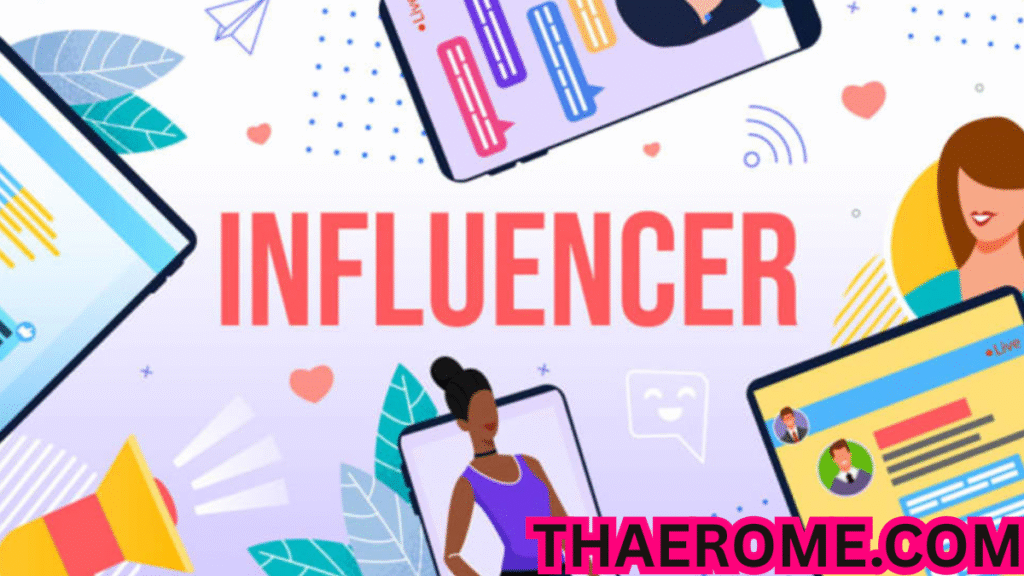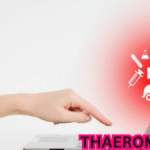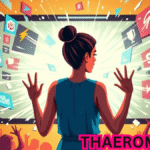Influencers Gone Wild In the ever-evolving landscape of social media, influencers have emerged as powerful figures, shaping trends, opinions, and consumer behavior. However, a concerning trend has surfaced in recent years: the phenomenon of “influencers gone wild.” This term refers to influencers who engage in extreme, controversial, or unethical behaviors to gain attention and maintain relevance. While some may view these actions as mere stunts for clout, they often have far-reaching consequences for the influencers themselves, their followers, and the broader digital ecosystem.
The Allure of Controversy
The pressure to stay relevant in a saturated market can drive influencers to resort to extreme measures. Sensational stunts, polarizing opinions, and inappropriate content are often employed to garner attention. For instance, the infamous “Tide Pod Challenge” saw individuals, including influencers, consuming laundry pods, leading to health risks and widespread criticism. Similarly, the Fyre Festival debacle highlighted how influencers’ endorsements can mislead followers, resulting in significant backlash and legal repercussions .
Psychological Factors Behind Risky Behavior
Several psychological factors contribute to influencers’ propensity for risky behavior. The pursuit of validation through likes, comments, and shares can create a cycle of dependency on external approval. Additionally, the fear of irrelevance in a rapidly changing digital landscape can push influencers to engage in controversial acts to maintain visibility. The “online disinhibition effect,” where individuals feel less restrained by social norms online, further exacerbates this tendency .
The Role of Social Media Platforms
Social media platforms play a pivotal role in either curbing Influencers Gone Wild or amplifying influencers’ wild behavior. Algorithms prioritize content that generates high engagement, often rewarding sensationalism and controversy. While platforms have guidelines prohibiting harmful content, enforcement can be inconsistent, allowing some influencers to continue their reckless behavior without facing consequences. This lack of regulation underscores the need for more robust content moderation and accountability mechanisms .
The Impact on Followers and Society
Influencers wield significant influence over their audiences, particularly among impressionable youth. When influencers engage in reckless or unethical behavior, it can set a dangerous precedent for their followers. The normalization of harmful actions, such as substance abuse or cultural appropriation, can perpetuate negative stereotypes and encourage imitation. Moreover, the glorification of such behavior can distort societal values and contribute to a culture of irresponsibility .
Ethical Considerations and Accountability
The ethical implications of influencers’ actions cannot be overlooked. Many influencers exploit sensitive topics or engage in deceptive practices to monetize their platforms. For example, promoting misleading health products or engaging in staged pranks can deceive followers and erode trust. The lack of accountability mechanisms allows such behaviors to persist, highlighting the need for stricter regulations and ethical standards within the influencer industry .
Mental Health and the Dark Side of Fame
The pursuit of fame and fortune can take a significant toll on influencers’ mental health. The constant scrutiny, pressure to maintain a curated image, and fear of public backlash can lead to anxiety, depression, and burnout. In some cases, influencers may resort to extreme behavior as a coping mechanism, further exacerbating their mental health challenges. Addressing these issues requires a holistic approach that includes mental health support, media literacy, and responsible content creation .
The Business of Influence Gone Wrong
Brands and advertisers often collaborate with influencers to promote products and services. However, aligning with influencers who engage in controversial or unethical behavior can backfire, damaging a brand’s reputation. In response, many companies are adopting more stringent vetting processes, focusing on authenticity and ethical standards when selecting influencer partners. This shift reflects a growing awareness of the risks associated with influencer marketing and the importance of brand safety .
The Future of Influencers Gone Wild
As the digital landscape continues to evolve, the phenomenon of influencers gone wild may either diminish or intensify. While platforms are implementing stricter content moderation policies, the incentive structures that reward sensationalism remain prevalent. The future will likely see a continued tension between the pursuit of viral fame and the need for ethical responsibility. Influencers, platforms, and audiences must collectively navigate this landscape to foster a more responsible and sustainable digital ecosystem.
FAQs
Q1: What does “influencers gone wild” mean?
A1: “Influencers gone wild” refers to influencers who engage in extreme, controversial, or unethical behaviors to gain attention and maintain relevance on social media platforms.
Q2: Why do influencers engage in risky behavior?
A2: Influencers may engage in risky behavior due to the pressure to stay relevant, the pursuit of validation, and the fear of irrelevance in a competitive digital landscape.
Q3: How do social media platforms contribute to this phenomenon?
A3: Social media platforms’ algorithms prioritize content that generates high engagement, often rewarding sensationalism and controversy, which can incentivize influencers to engage in extreme behavior.
Q4: What impact does this have on followers?
A4: Followers, particularly impressionable youth, may imitate influencers’ reckless behavior, leading to the normalization of harmful actions and the perpetuation of negative stereotypes.
Q5: What ethical concerns are associated with influencers gone wild?
A5: Ethical concerns include the exploitation of sensitive topics, deceptive marketing practices, and the erosion of trust between influencers and their audiences.
Q6: How does this affect influencers’ mental health?
A6: The constant scrutiny and pressure to maintain a curated image can lead to mental health challenges such as anxiety, depression, and burnout among influencers.
Q7: How are brands responding to this issue?
A7: Brands are adopting more stringent vetting processes, Influencers Gone Wild focusing on authenticity and ethical standards when selecting influencer partners to mitigate reputational risks.
Q8: What does the future hold for influencers gone wild?
A8: The future will likely see a continued tension between the pursuit of viral fame and the need for ethical responsibility, requiring collective efforts from influencers, platforms, and audiences to foster a responsible digital ecosystem.


